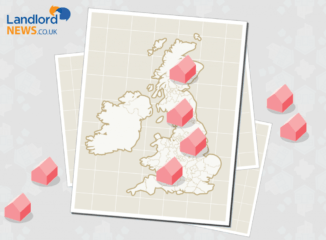Money.co.uk has provided tips for those considering taking in a lodger for the first time.
With the recent cost of living crisis, there can be financial benefits to renting out a room. Money.co.uk also says that a lodger may also be a great source of company, and could even help out with the household chores.
Their top six tips are:
1. Check permission with your mortgage lender
If you are a homeowner with a mortgage, you may need permission from your lender before you rent out part of your property. It is rare that a lender will have an issue with you having a lodger, but still worth checking. However, if you are a tenant, the tenancy you hold will determine your rights. As standard, if you are renting from a private landlord, you should check your tenancy agreement to see what your landlord will permit.
2. Find a suitable lodger
There are many sites that will help you find a lodger, such as SpareRoom.co.uk, RoomBuddies.co.uk and MondaytoFriday.com. Social media is another great tool for finding a lodger, so take to Facebook, Twitter and Instagram and have your friends share the message too. Or you could go old-school and pop an ad in the local newspaper! To make sure your lodger is the right choice for you, consider making your advertisement as clear as possible, including everything you are looking for in a lodger and any specific wants or needs. It is also important to make sure anyone you are taking into your home does not pose a threat to your safety. Therefore, make sure you ask your potential lodger for references and set up a meeting with them before signing any agreements.
3. Write up an agreement
A written agreement will allow both you and your lodger to clearly understand the rights and responsibilities both parties should uphold. For example, the exact amount of rent to be paid, whom it should be paid to, the contract length and any break clauses. As well as a general written agreement, it would also be a good idea to make an inventory of the lodger’s room. You could also take photos of the condition of both the room, and any applicable contents, such as furniture, before they move in.
4. Check the immigration status of your lodger
Even if you have a landlord, you are responsible for checking a lodger’s immigration status, as you could face a fine if they are found to be in the UK illegally. To do this, you either need to check your lodger’s original documents or view their rights to rent online if they have a ‘share code’. You’ll be able to find a detailed list of acceptable documents on the Gov.uk website and make sure to make copies of their documents.
5. Make sure your home is safe
If you are providing any furniture to your lodger, you will need to make sure it complies with fire safety regulations, so be sure to check all furniture labels. Gas regulations will also apply when taking in a lodger so any gas appliances will need to be checked yearly by an engineer who is registered with Gas Safe. Similar rules apply to electrical appliances, so you will need to make sure any kettles, toasters and other electrical appliances are safe to use.
6. Inform your home insurer
Although taking in a lodger will mostly benefit you financially, you might have to pay more in home contents insurance premiums. Therefore, it is important to inform your insurance provider, otherwise, your insurance could become invalid.
Kellie Steed, Mortgage Expert at money.co.uk, comments: “One way you can benefit from taking in a lodger is through the government’s Rent a Room scheme. This allows live-in landlords to earn up to £7,500 a year of tax-free cash, anything after that will be taxed. If you make less than the £7,500 threshold, then you don’t need to do anything and your tax exemption is automatic.
“However, if you earn above this threshold, you can opt into the scheme by letting HM Revenue & Customs know on your tax return, this way you can still claim your tax-free allowance. You can opt into the scheme at any time if you are a resident landlord and if you run a B&B or guesthouse.
“If you plan to rent out a room privately, the amount you can make really depends on the location of your property, its condition and the size of the room. To get a general idea, it is estimated that the current average for a double room in the UK is £90 a week.
“As well as charging for rent, you could also charge your lodger for council tax, utility bills, and even cleaning and food if provided. This would be a big help for those struggling with the rising costs of living on their own.
“If you are planning on buying a house in the near future, another great benefit of having a lodger is that this added stream of income can improve your affordability when applying for a mortgage. In turn, this might provide you with better deals and larger loans.
“However, you should be aware that not all lenders will take this into account given the short-term nature of having a lodger; it may only be the most flexible lenders that will look at the whole picture.
“It’s also important to note that taking in a lodger can affect any benefits you receive. If you receive means-tested benefits such as a Housing Benefit, the first £20 of weekly income from your lodger will be disregarded, as well as 50% of anything over £20 if you provide your lodger with food. “You will also remain responsible for paying council tax when taking in a lodger and will no longer benefit from the 25% single-person discount if you previously lived alone.”


